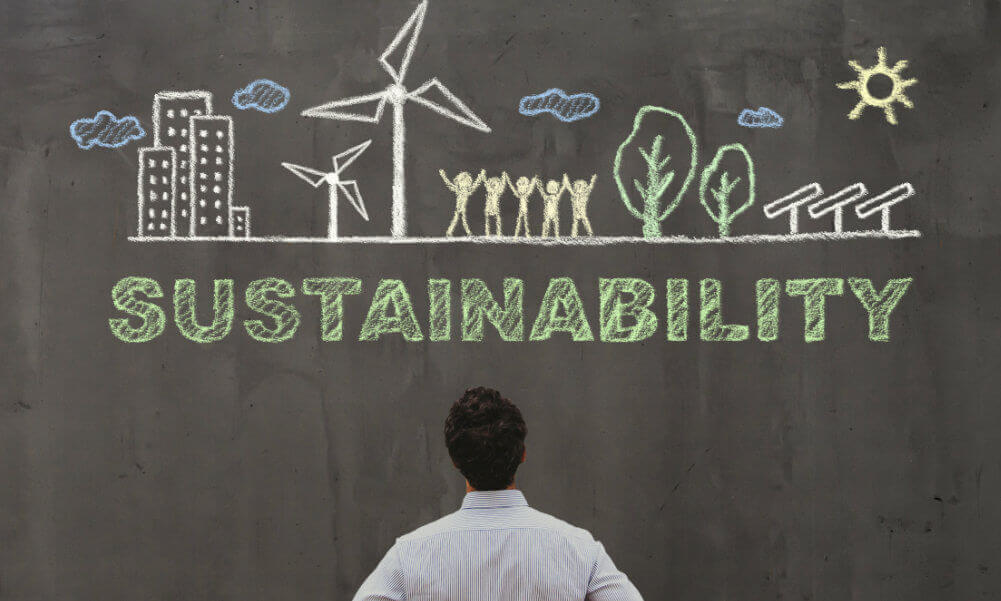Find Out What Drives Business Sustainability

Discover what drives business sustainability – In the 1900s many business owners believed that their only job was to create profit, more and more businesses are now adhering to the triple bottom line which requires them to focus on not just profit, but also people and the planet.
When asking business owners what drives them to shift to different approaches in their business models, the answer is usually that the business owner has been enticed by the benefits that these potential approaches have to offer. As such, the benefits that are associated with business sustainability are often the key factors that help to drive the development of relevant strategies.
Do You Know What Drives Business Sustainability?
When looking at the potential benefits or ‘drivers’ of sustainable business, one can divide them into two key categories: external factors and internal factors. Internal factors refer to the benefits and advantages that operating sustainably can have on internal operations, for example, financial benefits and benefits of workers. On the other hand, external factors refer to the benefits that may occur in external interactions and situations, such as environmental and communication benefits. These benefits will be further dissected in this article.
Breaking down the Internal Benefits
Financial Benefits
While the initial shift towards more sustainable business practices may lead to a high initial cost, the incorporation of sustainable practices has been proven to create internal long-term financial benefits. For example, many businesses can achieve cost savings through the implementation of simple practices like minimising the use of paper (reduces the cost of purchasing paper), turning off lights and appliances when they are not in use, and incinerating waste to serve as a new energy source (reducing the overall energy bill). Financial benefits can also be further obtained through lower material costs through investments in more efficient materials.
People benefits
Research has shown that the incorporation of sustainability agendas within company practices not only attracts a more motivated and skilled workforce but can also lead to increased feelings of satisfaction and fulfilment, resulting in better retention of employees. This is likely because sustainable businesses aim to have policies that truly benefit their staff and that aim to develop improved working conditions and enhance workplace safety. The integration of sustainable practices can also ensure that you minimise improper practices which may have otherwise led to negative impacts on your work or damaged your business’ reputation.
Breaking down the External benefits
Environmental benefits
According to Environmental Sustainability, we can potentially produce approximately 27 billion tons of solid waste and create a global temperature increase of two degrees by the year 2050. If we achieve these projections, there will be immense levels of pollution, increased sea level rise and the occurrence of catastrophic weather events. These projections are due to global business environments that prioritize rapid production and turnover of products for maximum profits.
Therefore, to save our planet, some business owners have taken action to cut down on emissions and waste and the depletion of the earth’s natural resources. While there is still much more to be done, many companies have been able to share the environmental benefits that they have been able to achieve by embracing sustainability.
Commercial benefits
There is an increasing number of companies that are pursuing sustainability to seek new market advantages and improve their public reputation. This is large because more and more global consumers are becoming conscious of the negative impacts that businesses can have, and now are willing to pay more for sustainable products. As such, adjusting practices to suit these consumers can lead to increased market share. Companies are also embracing new sustainable practices to impress potential investors and attract higher pay-outs. This aligns with the fact that in recent years, companies with sound sustainability strategies have gathered more investors.
Potential barriers to business sustainability
While these benefits greatly help to drive business sustainability, it is also important to recognise that regardless of their size or industry, all businesses face barriers which can make it difficult to incorporate sustainability into their principles. These barriers are summarised as follows:
Managerial barriers
Some business owners or managerial staff may have a general lack of interest or commitment when it comes to the implementation of sustainable practices as they prefer to run a business from a profit-focused standpoint. Moreover, some business owners may be interested in being more sustainable but may have external partners or investors who may be against the idea. This can be combatted by providing profit-focused managers with real values regarding the potential financial benefits associated with making sustainable shifts.
Informational barriers
Some business owners may have a genuine interest in being more sustainable but might not feel like they have access to the information needed to move forward. This issue can be reduced through the hiring of a sustainability manager to develop strategies on the company’s behalf or the hiring of a sustainability educator to get current staff up to speed.
Financial barriers
While some businesses may be interested in the potential long-term financial benefits that can come with the implementation of sustainable practices, the high initial costs associated with some green innovations and new technologies may hamper them from making such shifts. However, this barrier can be reduced by taking advantage of any government support that is provided like reduced taxes on sustainable technologies.
In closing, it can be said that many internal and external factors help to drive business sustainability. It is also important to remember that there are also barriers which may make it difficult to start the process towards improved sustainability and to know how to respond if and when you encounter them.
Related Posts

Business Environmental Sustainability
Business Environmental Sustainability (BES) is a new way of thinking about business. It's an approach that considers the environmental impact...
Read More >
How Small Business Owners Can Develop a Business Sustainability Plan
The adoption of sustainable practices not only improves a business’s bottom line, but also helps to improve brand reputation, reduce...
Read More >